 W
W"Ain't That Enough" is a song recorded by Scottish rock band Teenage Fanclub. The song was released on 30 June 1997 through Creation Records, as the lead single from the band's sixth studio album Songs from Northern Britain. The song was written and sung by vocalist and bassist Gerard Love. AllMusic biographer Matt Collar writes that the song touches on themes of "nature, romantic fidelity, and the passing of time."
 W
W"All Around the World" is a song by the English rock band Oasis. It was written by the band's lead guitarist and principal songwriter Noel Gallagher. Released on 12 January 1998 as the third single from their third studio album Be Here Now (1997), it is the longest song ever recorded by Oasis. The song peaked at number one on the UK Singles Chart, becoming the longest song ever to reach number one, and earned a Gold certification. This was the last Oasis single to be released on the Creation Records label. The song also reached number one in Ireland and peaked at number 15 on the US Billboard Modern Rock Tracks chart.
 W
W"Black Nite Crash" is a single by English shoegazing band Ride, from their album Tarantula. It reached number 67 in the UK Singles Chart on 24 February 1996. This single was released shortly before the band's break up, and was awarded single of the week by the weekly music magazine Melody Maker.
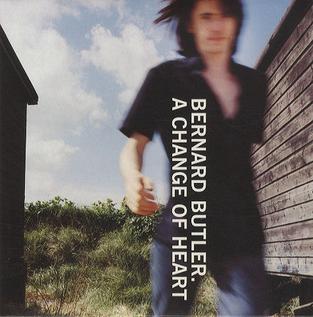 W
W"A Change of Heart" is the third single from Bernard Butler released in June 1998. It is the final single taken from the album People Move On and charted at number 45 on the UK Singles Chart.
 W
W"Cigarettes & Alcohol" is a song by English rock band Oasis, written by Noel Gallagher. It was released on 10 October 1994 as the fourth and final single from their debut album Definitely Maybe (1994), and their second to enter the UK top ten in the United Kingdom, peaking at number 7, eventually spending 79 weeks on the charts. On 13 March 2020, 26 years after release, the song was certified Platinum, indicating 600,000 sales.
 W
W"The Concept" is a song recorded by Scottish rock band Teenage Fanclub. The song was released on 21 October 1991 through Creation Records, as the second single from the band's third studio album Bandwagonesque. The song was written and sung by vocalist and guitarist Norman Blake.
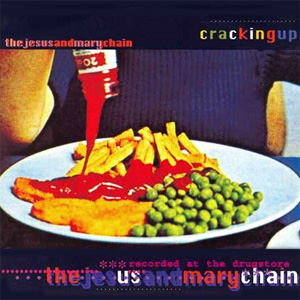 W
W"Cracking Up" is a song by the Scottish alternative rock group The Jesus and Mary Chain and the first (new) single from the group's album Munki. It was released by Creation Records in April 1998 and reached #35 in the UK single charts.
 W
W"D'You Know What I Mean?" is a song by the English rock band Oasis. Written by Noel Gallagher, it was released on 7 July 1997 as the first single from their third album Be Here Now (1997).
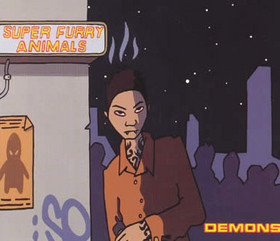 W
W"Demons" is the fourth and final single from Super Furry Animals' album Radiator. It reached #27 on the UK Singles Chart on its release in November 1997.
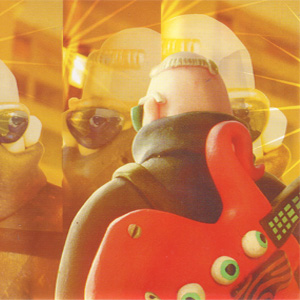 W
W"Do or Die" is the eleventh single by Super Furry Animals. It was the third and final single to be taken from the Guerrilla album and was the band's last release for Creation Records. The track reached number 20 in the UK Singles Chart after its release on 17 January 2000. The group had originally wanted to release "Wherever I Lay My Phone " as the final single from Guerilla but Creation instead chose "Do or Die", a decision which the band claimed not to understand.
 W
W"Don't Go Away" is a song by English rock band Oasis from their third album, Be Here Now, written by Noel Gallagher. The song was released as a commercial single only in Japan, peaking at number 48 on the Oricon chart, and as a promotional single in the United States and Canada. In the United States and Canada, it reached number 35 on the US Billboard Hot 100 Airplay chart and number 15 on the Canadian RPM Top Singles chart in late 1997.
 W
W"Don't Look Back in Anger" is a song by English rock band Oasis. It was written by the band's guitarist and main songwriter Noel Gallagher. The song was produced by Gallagher and Owen Morris. Released on 19 February 1996 as the fourth single from their second studio album, (What's the Story) Morning Glory? (1995), it became Oasis's second single to reach No. 1 on the UK Singles Chart, earning a quadruple-platinum sales certification in the UK. It was the first Oasis single with lead vocals by Noel, who had previously only sung lead on B-sides, instead of his brother Liam. Noel would later sing lead vocals on six more singles.
 W
W"Feed Me with Your Kiss" is a song by the alternative rock band My Bloody Valentine, and was released as a single and also the lead track to the EP of the same name through Creation Records. It is the seventh track and lead single from the band's debut studio album Isn't Anything. It was released on 31 October 1988.
 W
W"Fire in My Heart" is the tenth single by Welsh rock band the Super Furry Animals. It was the second single to be taken from the group's 1999 album Guerrilla, and reached number 25 in the UK Singles Chart after its release on 9 August 1999. The track, originally titled "Heartburn", has been described by the band's singer Gruff Rhys as a country and western song with lyrics that offer "soul advice".
 W
W"God! Show Me Magic" is the second single by Super Furry Animals. It reached #33 on the UK Singles Chart on its release in April 1996, the first single by the band to reach the Top 40.
 W
W"Hermann ♥'s Pauline" is the sixth single by Super Furry Animals and the first to be released from their second album Radiator. It reached #26 on the UK Singles Chart on its release in May 1997.
 W
W"Hometown Unicorn" is the debut single by Super Furry Animals, released on Alan McGee's Creation Records label on 26 February 1996. It reached #47 in the UK Singles Chart and was voted as "Single of the Week" in NME.
 W
W"I Don't Want Control of You" is a song recorded by Scottish rock band Teenage Fanclub. The song was released on 18 August 1997 through Creation Records, as the second single from the band's sixth studio album Songs from Northern Britain. The song was written and sung by vocalist and guitarist Norman Blake.
 W
W"I Love Rock 'n' Roll" is a song by the Scottish alternative rock group The Jesus and Mary Chain and the second single from the group's album Munki. It was the band's last single before they split up. It was released by Creation Records in May 1998 and reached #38 in the UK single charts.
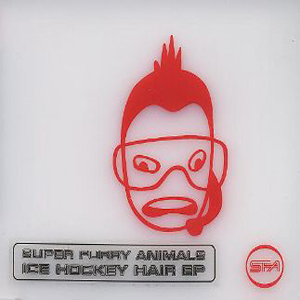 W
WIce Hockey Hair is an EP by the Welsh alternative rock band Super Furry Animals, released in 1998. The record contains four songs which the band felt did not fit in with either their previous album, 1997's Radiator, or its follow-up Guerrilla. The title track refers to an alternative name for the mullet hairstyle. The EP's opening song, "Smokin'", was commissioned by British television station Channel 4 for a programme about sloth presented by Howard Marks. "Ice Hockey Hair" was later included on 'greatest hits' compilation Songbook: The Singles, Vol. 1, issued in 2004, while "Smokin'" appeared on 1998's B-side and rarities compilation Out Spaced.
 W
W"If You Don't Want Me to Destroy You" is the fourth single, and the last to be taken from the album Fuzzy Logic, by Super Furry Animals. It reached #18 on the UK Singles Chart on its release in September 1996.
 W
W"Instrumental" is a song by the alternative rock band My Bloody Valentine. It was released as a limited edition free single with the first 5,000 LP copies of the band's debut studio album Isn't Anything, released on 21 November 1988 on Creation Records.
 W
W"The International Language of Screaming" is the second single from Super Furry Animals' album Radiator. It reached #24 on the UK Singles Chart on its release in July 1997.
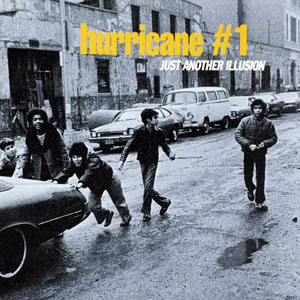 W
W"Just Another Illusion" is the second single from Hurricane #1's self-titled debut album. The song reached number 35 on the UK singles chart.
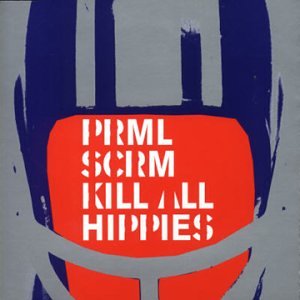 W
W"Kill All Hippies" is a song by Scottish rock band Primal Scream, released on 20 March 2000 as the second single from their sixth studio album, XTRMNTR. The song has an aggressive, electronically processed sound, with prominent use of sampled drum loops and distorted guitars. Its title is a quote from the 1980 film Out of the Blue, and begins with a sample of the line and other quotes from the film spoken by actress Linda Manz. Upon release, the song debuted and peaked at number 24 on the UK Singles Chart and spent one more week in the top 100 before dropping out.
 W
W"Kowalski" is a song by Scottish rock band Primal Scream, released on 5 May 1997 as the lead single from their fifth studio album Vanishing Point. The song contains a drum sample from "Halleluhwah" by Can and an interpolation of the bassline from "Get Off Your Ass and Jam" by Funkadelic, and is named after the main character of the 1971 film Vanishing Point, played by Barry Newman; it also features various dialogue samples from said film.
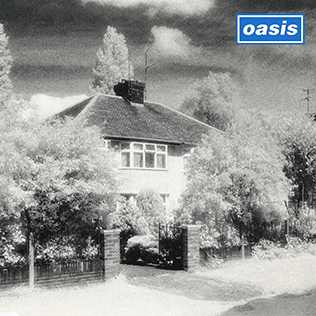 W
W"Live Forever" is a song by English rock band Oasis. Written by Noel Gallagher, the song was released as the third single from their debut album Definitely Maybe (1994) on 8 August 1994, just prior to that album's release. Gallagher wrote the song in 1991, before he joined Oasis.
 W
W"Loaded" is a song by Scottish rock band Primal Scream, released in February 1990 as the lead single from their third studio album Screamadelica (1991). Mixed and produced by Andrew Weatherall, it is a remix of an earlier song titled "I'm Losing More Than I'll Ever Have".
 W
W"The Man Don't Give a Fuck" is a song by Super Furry Animals, twice released as a single by the group.
 W
W"Morning Glory" is a song by the English rock band Oasis, written by Noel Gallagher and released on the band's second album (What's the Story) Morning Glory? in September 1995. It was given a commercial single release only in Australia and New Zealand, and it was also a radio single in the United States and Canada. In North America, it was the first song of the album to receive significant airplay, although primarily at alternative rock radio stations, as "Some Might Say" and "Roll with It" had not achieved as such.
 W
WNever Lose That Feeling is fifth EP release by English alternative rock band Swervedriver. Produced by Swervedriver and Alan Moulder, the EP was released on 18 May 1992. The EP is the band's final release with the original lineup. The title track off the EP, which was included on the band's second album Mezcal Head (1993), was released as a single in 1992, peaking at number 62 on UK Singles Chart.
 W
W"Northern Lites" is the ninth single by Super Furry Animals. It was the first single to be taken from the Guerrilla album and reached number 11 in the UK Singles Chart after its release on 10 May 1999. The song was written by singer Gruff Rhys and was inspired by the El Niño phenomenon. The track's title refers to the Aurora Borealis, a natural light display which the band were convinced they had seen prior to the song being written. Rhys wrote the melody for "Northern Lites" several years before it was completed but only decided on a calypso style after he wrote the lyrics. The steel drums on the track are played by keyboardist Cian Ciaran and were added on the spur of the moment after the group saw them "lying around" Real World Studios during recording.
 W
W"Not Alone" is the second single from Bernard Butler released in March 1998. It was taken from the album People Move On and charted at number 27 on the UK Singles Chart.
 W
W"Only Shallow" is a song by the alternative rock band My Bloody Valentine. It is the opening track and second single from the band's second studio album, Loveless (1991), released on Creation Records. Written by Kevin Shields and Bilinda Butcher, "Only Shallow" features Shields' distinctive guitar sound—a technique known as "glide guitar"—characterized by heavy use of a tremolo bar while strumming.
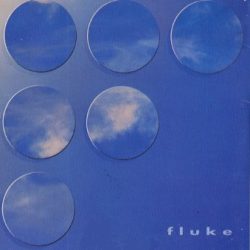 W
W"Philly" is the fourth single by the English electronic music band Fluke. This was the band's first single to be released on a major record label, Creation Records as well as the band's first CD format released.
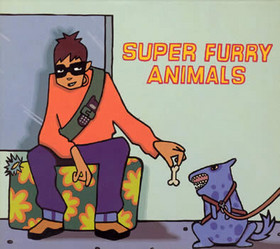 W
W"Play It Cool" is the third single from Super Furry Animals' album Radiator. It reached number 27 on the UK Singles Chart on its release in September 1997.
 W
W"Rocks" is a song by Scottish rock band Primal Scream, taken from their fourth studio album, Give Out But Don't Give Up (1994). This song was the first indication of Primal Scream's change in musical style, when compared to their previous album, 1991's Screamadelica, which featured dance leanings. "Rocks" features a more classic rock structure inspired by artists such as T. Rex, the Rolling Stones, and Faces. Faces singer Rod Stewart would later cover the song himself, including it on his 1998 album When We Were the New Boys. The intro is in a similar style to the drumbreak of Sly and the Family Stone's "Dance to the Music".
 W
W"Roll with It" is a song by English rock band Oasis, written by lead guitarist Noel Gallagher. It was released on 14 August 1995 as the second single from their second studio album (What's the Story) Morning Glory? (1995).
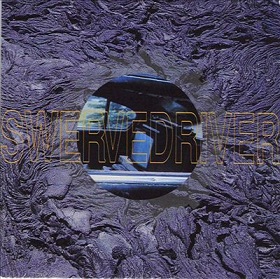 W
WSandblasted is the third EP release by English alternative rock band Swervedriver. Self-produced and recorded by the band, it was released on 22 July 1991, through Creation and A&M Records. The title track of the EP was included in the band's debut album, Raise (1991) and was released as a single, peaking at number 67 on UK Single Charts.
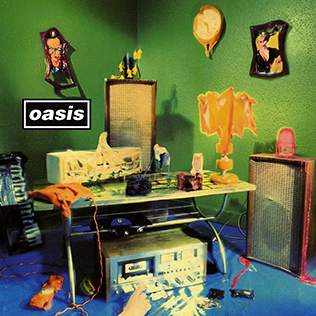 W
W"Shakermaker" is a song by the English rock band Oasis. It was written by lead guitarist Noel Gallagher. The song was first released as a second single on 20 June 1994 and later released on Oasis' debut album Definitely Maybe (1994). The single peaked at number eleven in the UK. It was certified silver by the British Phonographic Industry in 2013, having previously been their only single of the 1990s not to be certified in the UK. As of 2021, it remains the only single from the band's first two albums not to reach at least platinum status in the UK, and their only single of the 1990s not to be certified gold.
 W
W"Slide Away" is a song by the English rock band Oasis, taken from their debut studio album Definitely Maybe (1994). It was written by lead guitarist Noel Gallagher and serves as the tenth track on the album.
 W
W"Some Might Say" is a song by the English rock band Oasis. It was released as the first single on 24 April 1995 from their second studio album, (What's the Story) Morning Glory? (1995). The song was written by the band's lead guitarist Noel Gallagher. "Some Might Say" provided Oasis with their first number one on the UK Singles Chart and reached the top 10 in Finland, Iceland, Ireland and Sweden. The song is also the last to feature all 5 original members, as original drummer Tony McCarroll left shortly after the song's release.
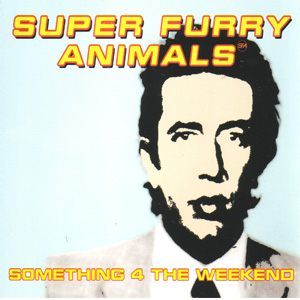 W
W"Something 4 the Weekend" is the third single by Super Furry Animals. The title track is a more mellow reworking of the song "Something For the Weekend" from the band's debut album Fuzzy Logic. The original version is included as the last track on the single. It reached #18 on the UK Singles Chart on its release in July 1996. "Something 4 The Weekend" replaces the original album version of the song on the American release of Fuzzy Logic.
 W
W"Sparky's Dream" is a song recorded by Scottish rock band Teenage Fanclub. The song was released on 22 May 1995 through Creation Records, as the lead single from the band's fifth studio album Grand Prix. The song was written and sung by vocalist and bassist Gerard Love.
 W
W"Stand by Me" is a song by the English rock band Oasis, written by lead guitarist, Noel Gallagher. It was released on 22 September 1997 as the second single from the band's third studio album, Be Here Now (1997).
 W
W"Star" is a song by Scottish rock band Primal Scream. It was released on 16 June 1997 as the second single from their fifth studio album, Vanishing Point (1997). It peaked at number 16 on the UK Singles Chart. NME named it the 27th best track of 1997.
 W
W"Star Sign" is a song recorded by Scottish rock band Teenage Fanclub. The song was released on 12 August 1991 through Creation Records, as the lead single from the band's third studio album Bandwagonesque. The song was written and sung by vocalist and bassist Gerard Love.
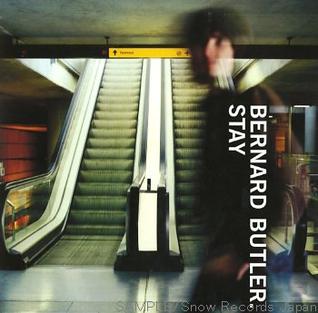 W
W"Stay" is the debut single from Bernard Butler released in January 1998. It is the lead single taken from the album People Move On and charted at number 12 on the UK Singles Chart.
 W
W"Sugar" is a song by the alternative rock band My Bloody Valentine. It was released as a non-album split single with Pacific, whose song "December, with the Day" is featured as the single's b-side. "Sugar"/"December, with the Day" was released in February 1989 on Creation Records and issued free with issue 67 of the British music magazine The Catalogue.
 W
W"Supersonic" is the debut single by the English rock band Oasis. Written by lead guitarist Noel Gallagher, it was released on 11 April 1994 as Oasis' debut single and later appeared on their debut album Definitely Maybe in August 1994.
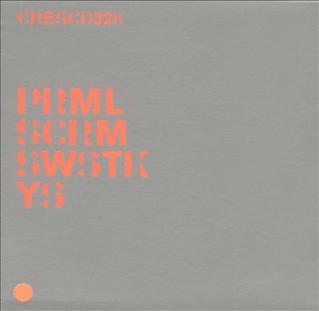 W
W"Swastika Eyes" is a song by Scottish rock band Primal Scream, released on 8 November 1999 as the lead single from their sixth studio album XTRMNTR (2000). The attention-grabbing title is an example of the band's confrontational style in this period, although they have stated that the song is an attack on corporations and governments. The song peaked at number 22 on the UK Singles Chart.
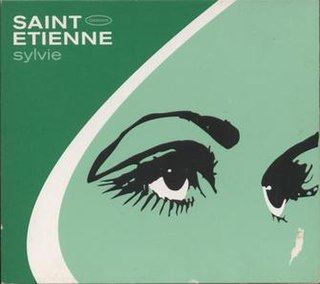 W
W"Sylvie" is a 1998 song written and performed by British pop group Saint Etienne, released as the first single from their fourth album, Good Humor. Produced by Swedish record producer, composer and musician Tore Johansson, it peaked at number 12 on the UK Singles Chart and number 62 on the Eurochart Hot 100. The music video of the song was shot in Havana, Cuba.
 W
W"Upside Down" is the debut single from the Scottish alternative rock band The Jesus and Mary Chain. The song was written by William Reid and Jim Reid, and was produced by The Jesus and Mary Chain. The b-side is a cover of a Syd Barrett song and was produced by Joe Foster.
 W
W"Vapour Trail" is a song by British shoegazing band Ride. It is the closing track of the band's debut album, Nowhere (1990), released on Creation Records, and was later released as a single in the United States in early 1991. Written by lead guitarist Andy Bell, the song features a distinctive swirling guitar riff, a strong, fill-based drum beat, and a coda that includes a string quartet.
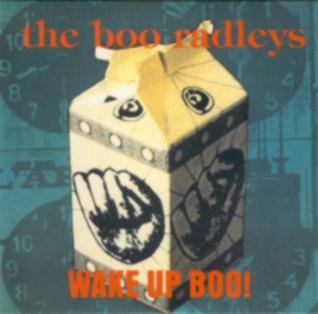 W
W"Wake Up Boo!" is a song recorded by British indie band the Boo Radleys for their fourth album, Wake Up! (1995). It was by far their biggest hit both in the UK and internationally. The track is an upbeat guitar-pop song about the change from summer to autumn, contrasting the narrator's optimism with his companion's pessimism. Part of the song was used as a jingle by Chris Evans for his BBC Radio 1 breakfast show in the mid nineties.
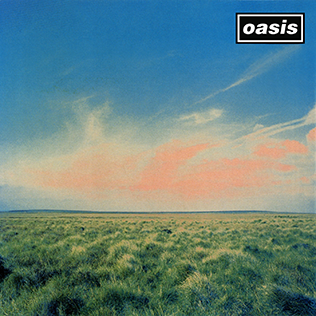 W
W"Whatever" is a song by the English rock band Oasis. Written by the band's lead guitarist, Noel Gallagher, it was released on 18 December 1994 as the band's first non-album single. A subsequent lawsuit awarded a co-writing credit to Neil Innes.
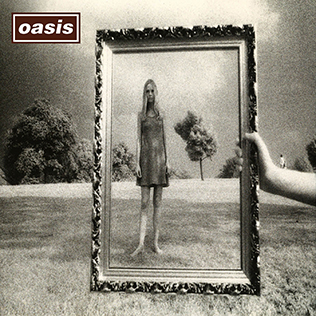 W
W"Wonderwall" is a song by English rock band Oasis. The song was produced by Noel Gallagher and Owen Morris for the band's second studio album (What's the Story) Morning Glory? (1995). According to Gallagher, "Wonderwall" describes "an imaginary friend who's gonna come and save you from yourself".